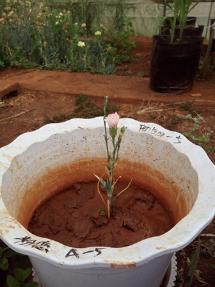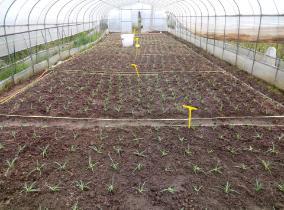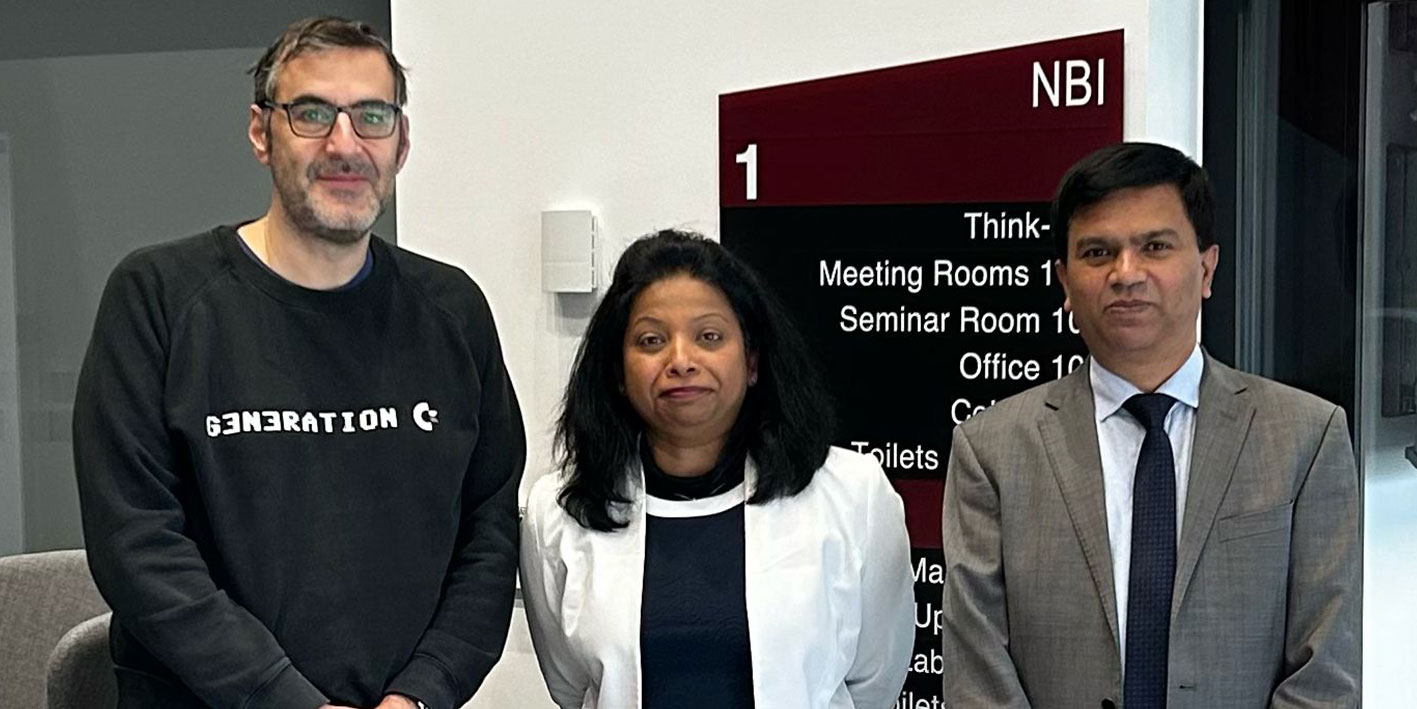
Carnation cultivation to tackle soil pollution
Researchers from the University of Wolverhampton are looking to tackle soil pollution in China through the cultivation of carnations.
Heavy metal pollution of soil is a global environmental problem, which has affected about 235 million hectares of arable land world-wide.

The causes include industry releasing toxic waste into the soil, water and air, which is a major problem in many regions of the globe, including China where there is a major issue with cadmium contamination.
Among the techniques used to tackle this problem, is phytoremediation, a promising ‘green technology’ through which selected plant species are used to absorb/remove unwanted heavy metals from the soil.
The use of ornamental flowers for such purposes means that the harvested flowers can also be sold for profit.
In the current project, two members of staff from Wolverhampton, Professor Michael Fullen and Dr Timothy Baldwin, in collaboration with colleagues (Professors Li Yongmei, Zu Yanqun and Li Ming) based at Yunnan Agricultural University (YAU) in Yunnan Province P.R. China, are using the carnation (Dianthus caryophyllus) to remove cadmium from contaminated soils in Yunnan Province, south-west China.

The eventual aim is to remove sufficient Cd from the soil to make it suitable for food production.
Professor Fullen and Dr Baldwin and their Chinese collaborators are currently co-supervising a PhD student Wu Jiong, based at YAU, who is performing the field and laboratory experiments.
The first phase of the project involves the use of a selection of carnation cultivars, grown in a variety of Cd concentrations to test the efficacy of phytoremediation by each cultivar. These experiments are being performed in fully replicated and statistically rigorous pot experiments.
Results from this initial phase will inform the design of future field and glasshouse experiments. In subsequent experiments, the focus will be on the most effective cultivar in terms of cadmium removal.
The project will take three years and is funded by YAU.
Wu Jiong studied at the University of Wolverhampton for an MSc in Environmental Management from 2009-2011.

She said; “The experience had a huge influence on me.”
After she finished postgraduate study, she started work as a lecturer at Yunnan Agricultural University. “In order to improve my professional skills and since I knew the University of Wolverhampton actively collaborates with YAU, I then applied to undertake a PhD at the University of Wolverhampton, focusing on phytoremediation of cadmium in soils using carnations,” she added.
ENDS
For more information please contact the Corporate Communications Team.


/prod01/wlvacuk/media/departments/digital-content-and-communications/images-2024/240328-Varsity-Line-Up-Resized.jpg)
/prod01/wlvacuk/media/departments/digital-content-and-communications/images-18-19/220325-Engineers_teach_thumbail.jpg)
/prod01/wlvacuk/media/departments/digital-content-and-communications/images-2024/240404-Digital-Humanities-Training-Resized.jpg)
/prod01/wlvacuk/media/departments/digital-content-and-communications/images-2024/240320-Uzbekistan-Resized.jpg)
/prod01/wlvacuk/media/departments/digital-content-and-communications/images-2024/240229-The-Link-Resized.jpg)
/prod01/wlvacuk/media/departments/digital-content-and-communications/images-2024/240411-IYC-Resized.jpg)

